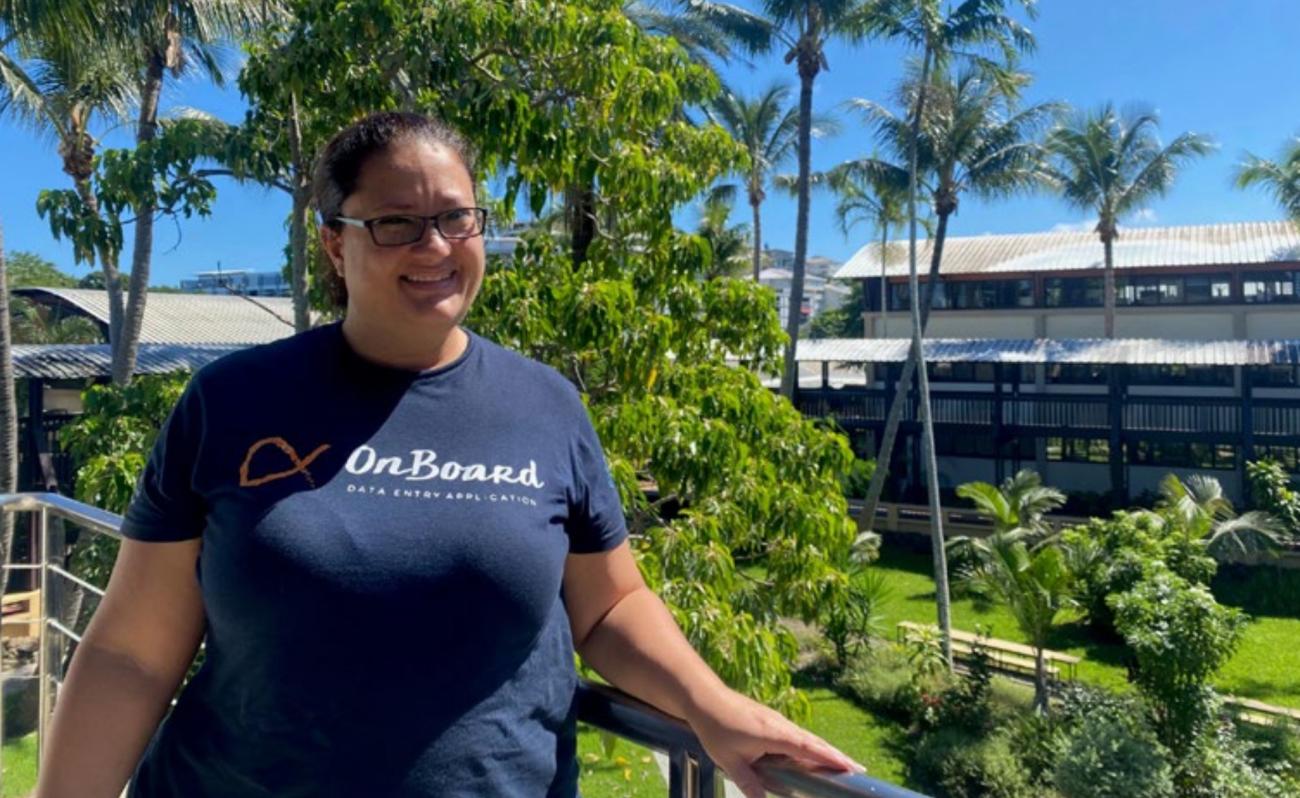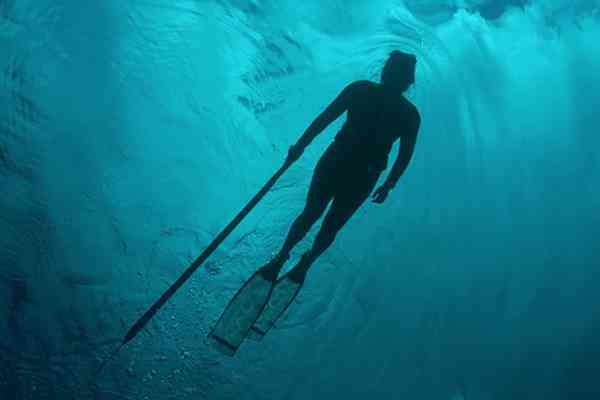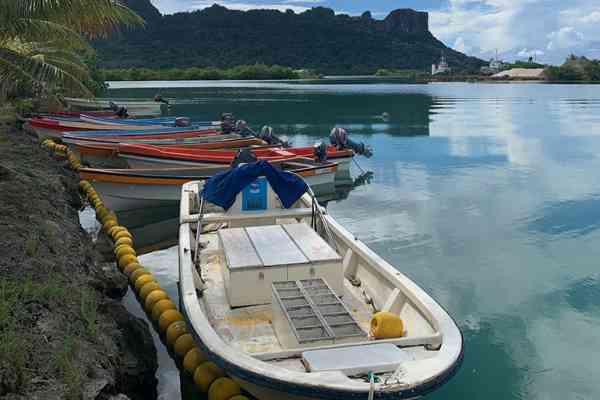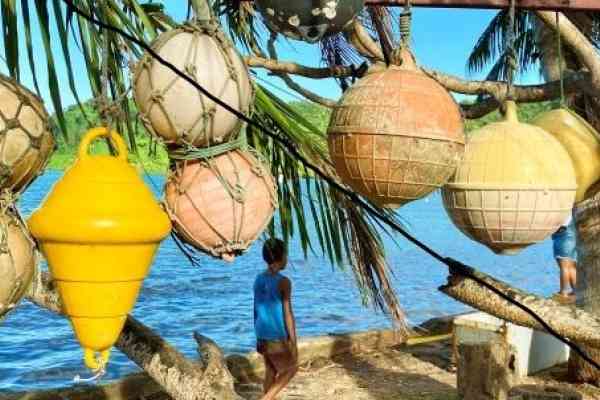(contenu disponible en anglais uniquement)
An interview reveals the challenging and fascinating work of data collectors in French Polynesia, shedding light on the inspiring journey of Vaiana Joufoques.
The inspiring journey of Vaiana Joufoques in fishery data collection
Vaiana Joufoques was born and raised in Tahiti, within a multicultural family, combining her father’s Chinese origins and her mother’s European heritage. After pursuing studies in biology at the University of Tahiti, she obtained a master’s degree in aquaculture, marking the beginning of an accomplished and diverse career. For nearly a decade, Vaiana worked in the field of aquaculture before shifting her focus to statistics and fishery monitoring.
After years of working in the field of aquaculture, Vaiana decided to change the trajectory of her career to develop new skills and diversify her experience. She then seized the opportunity to join the Statistics Office under the Directorate of Marine Resources, based in Papeete, Tahiti. This position exposed her to different fishery sectors and a comprehensive perspective on the state of the resources. An essential aspect of her teamwork involves raising awareness among Polynesian fishers about the protection of regulated fishing areas and the importance of establishing quotas in order to protect certain species from overharvesting.
For the past decade, Vaiana has been dedicated to data collection, working closely with the Pacific Community (SPC) and their Data Management team. This collaboration has significantly improved the uptake of electronic reporting tools, such as OnBoard,1 and improved the quality of the data collected by fishers.
Vaiana’s days are demanding. As a mother of three children, she wakes up at 5 a.m. to take care of her family before immersing herself in her work. As the head of the Statistics Office, she supervises nine staff, including two women and seven men. One of her main responsibilities is the analysis of the data she collects. These analyses are crucial for providing the information necessary to monitor and assess the status of marine resources in the waters of French Polynesia. In addition, the information generated is reported to international fisheries commissions such as the Western and Central Pacific Fisheries Commission (WCPFC) and the Inter-American Tropical Tuna Commission (IATTC), to inform regional assessments and management of these marine resources. As French Polynesia is a member of both the WCPFC and the IATTC, Vaiana and her team must ensure they are meeting their reporting requirements within the specified deadlines, thus providing essential data to support sustainable fisheries management in her country and throughout the broader region.
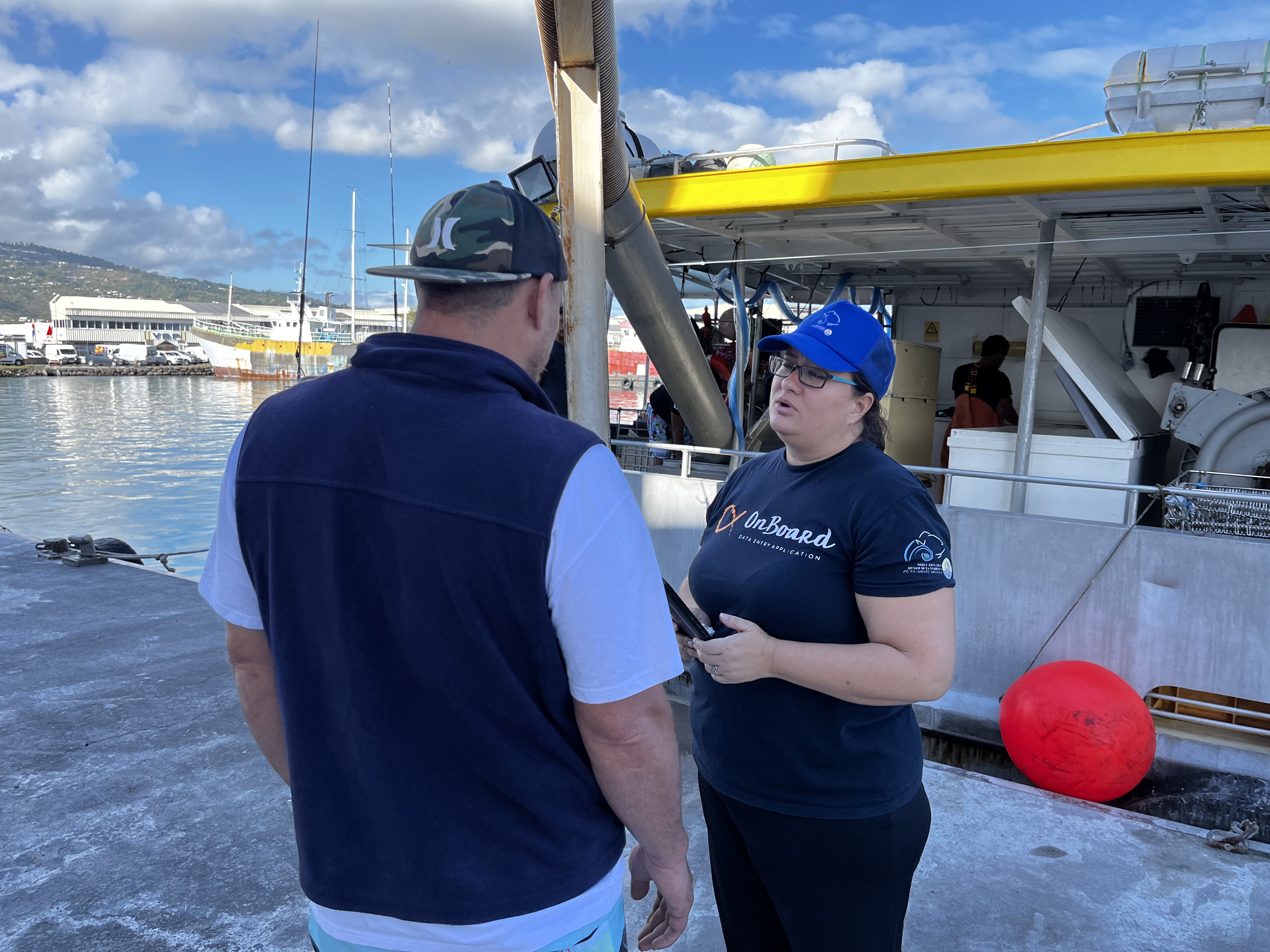
Challenges and technological advances in fisheries data collection
The volume of data collected by Vaiana’s team is impressive. In 2022, French Polynesia had a fleet of 80 active longliners, as well as a large artisanal fishing fleet comprising 400 boats spread across the five archipelagos. Each year, around 1100 longline fishing campaigns are managed, representing 7500 tonnes per year and around 12,000 fishing days. Small-scale fishing represents 2300 tonnes per year and 35,000 fishing days. Vaiana and her team have adapted their data collection methods through the years, as newer technologies, such as electronic reporting, have begun to replace the more traditional data collection methods or recording data with pencil and paper. In 2017, they took the initiative to adopt an electronic reporting system with the support of the SPC team, becoming pioneers in the use of SPC’s OnBoard application in the region. OnBoard, which is used by longline fishing vessel captains to report their fishing catch information, allows direct transmission of the collected data into SPC tuna data management software, TUFMAN 2.
The introduction of TUFMAN 2 has been a true revolution for Vaiana and her team. This web-based tool allows data collectors to optimise their work since it incorporates a comprehensive data quality control engine that can highlight all potential errors, such as misreporting or missing information. The integrated interface also enables the team to crossreference various data sources more efficiently and therefore improve the overall quality of collected information.
Convincing fishers and captains to transition from paperbased systems to electronic tablets was not easy. Some captains, often older individuals, resisted this technology. But with perseverance, after five years they successfully equipped 100 per cent of the vessels with tablets, significantly improving data collection coverage and reliability.
The importance of human relationships in Vaiana’s work with fishers
Beyond the technical aspects, Vaiana attaches great importance to human relationships. She and her team build trust with fishing captains, seeking to understand and support them. She encourages active participation from fishers, urging them to accurately report their bycatch, an important task in the management and protection of non-target species such as sharks and rays. Her team maintains close ties with the fishers, even going to the port every morning to engage with them and gather their feedback.
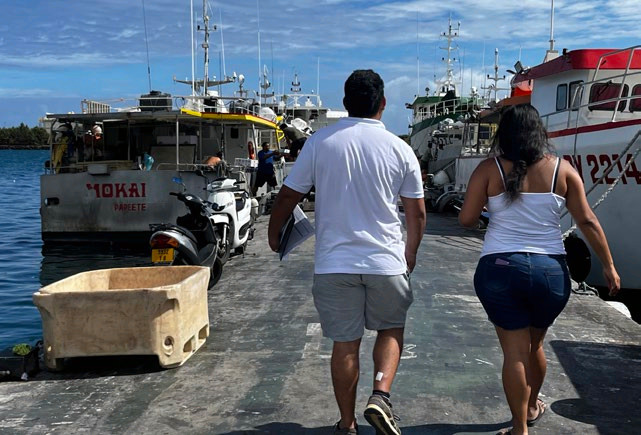
Passion for the ocean as a way of life
Outside her work, Vaiana nurtures a passion for fishing, a tradition passed down by her grandfather and uncle. When she is near the sea, she explores every nook with curiosity, already instilling in her children a respect for the ocean and its inhabitants.
Vaiana Joufoques embodies the dedication and passion of fishery data collectors in French Polynesia. This work is more than a job, it is an opportunity to be a steward of the place they call home. Her journey and extensive experience in the maritime sector have made her an important figure and role model in the preservation of marine resources and the sustainability of fishing in her community.
To all the women passionate about the ocean
The fishing industry and fisheries sector has long been maledominated. Vaiana has been helping to remove gender barriers and inspiring other women to enter the fisheries field. She is convinced of the importance of women’s contribution alongside men to foster team spirit. Gender roles in the Pacific have long shaped expectations placed on women and men. While women have experienced greater limitations in exploring roles and jobs that are often associated with men, she thinks that women should not shy away from embracing their full potential. For her, this means using her refined instincts and eye for detail in reporting bycatch, leveraging her empathetic ways and her ability to establish trust in order to build relationships, and connect and network with fishers and other stakeholders in the sector. For Vaiana, it is a matter of harnessing her individual talents and skills as opposed to being limited by them because they are associated with being weak, female or ‘too soft’.
As a mother of three children, Vaiana dreams of a future where her children can pursue their studies and return to contribute to the development of their country. She works hard to provide them with this opportunity and already raises their awareness about ocean and environmental preservation. Her commitment to protecting marine ecosystems is deeply rooted in her Polynesian culture, where turtles, birds and cetaceans also hold a special place.
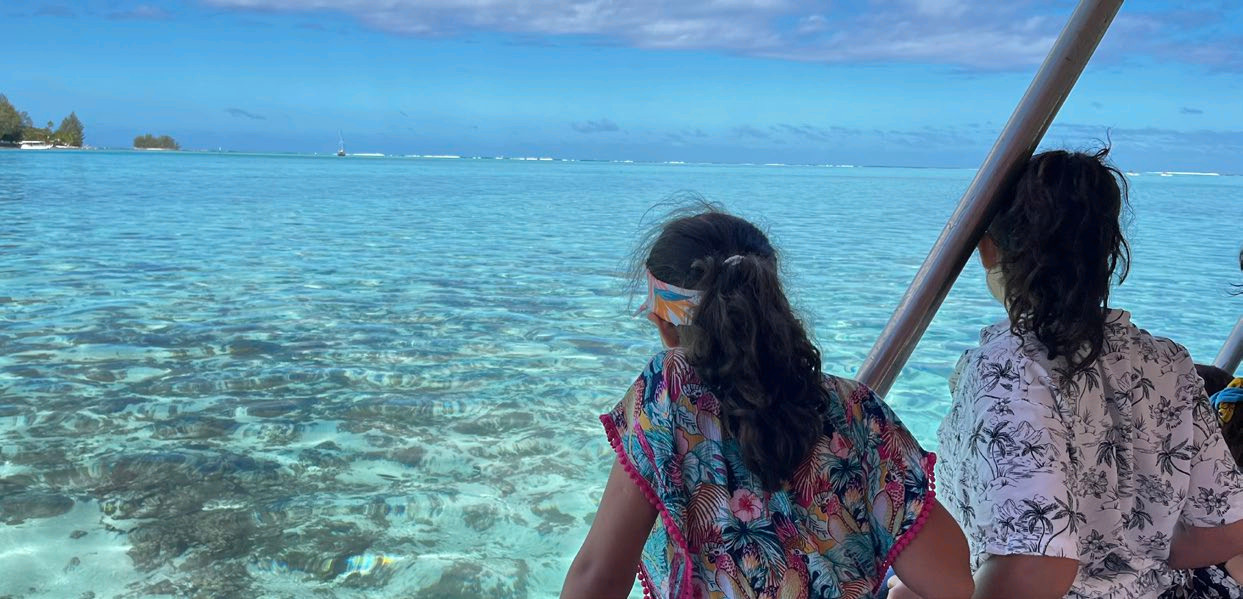
For more, please check out the full SPC Fisheries Newsletter via this link.
